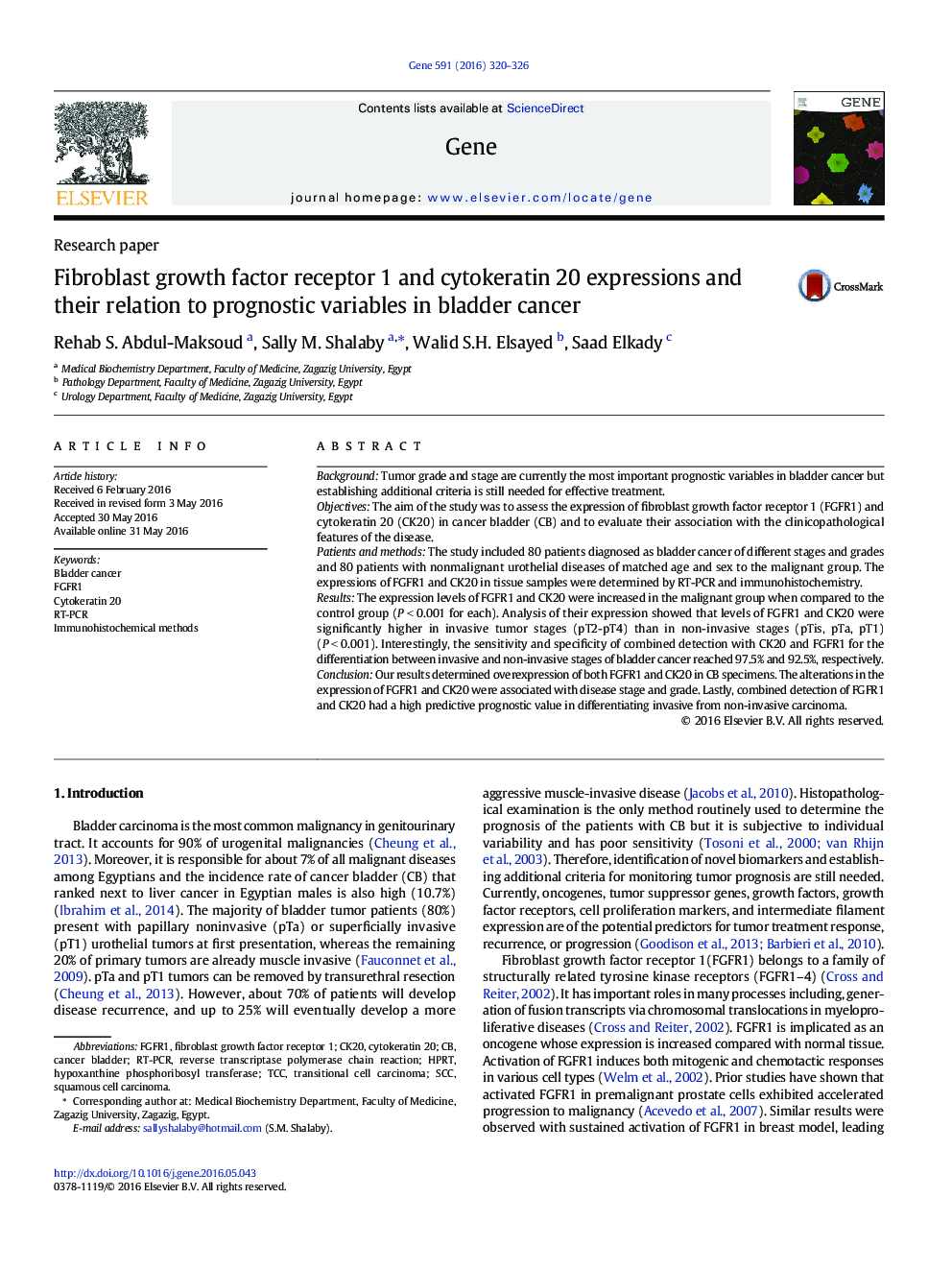| Article ID | Journal | Published Year | Pages | File Type |
|---|---|---|---|---|
| 2814779 | Gene | 2016 | 7 Pages |
•There was an overexpression of both FGFR1 and CK20 in CB specimens.•There were relations between FGFR1 or CK20 and tumor stage and grade.•Combination of the two markers was an excellent prognostic indicator for CB.
BackgroundTumor grade and stage are currently the most important prognostic variables in bladder cancer but establishing additional criteria is still needed for effective treatment.ObjectivesThe aim of the study was to assess the expression of fibroblast growth factor receptor 1 (FGFR1) and cytokeratin 20 (CK20) in cancer bladder (CB) and to evaluate their association with the clinicopathological features of the disease.Patients and methodsThe study included 80 patients diagnosed as bladder cancer of different stages and grades and 80 patients with nonmalignant urothelial diseases of matched age and sex to the malignant group. The expressions of FGFR1 and CK20 in tissue samples were determined by RT-PCR and immunohistochemistry.ResultsThe expression levels of FGFR1 and CK20 were increased in the malignant group when compared to the control group (P < 0.001 for each). Analysis of their expression showed that levels of FGFR1 and CK20 were significantly higher in invasive tumor stages (pT2-pT4) than in non-invasive stages (pTis, pTa, pT1) (P < 0.001). Interestingly, the sensitivity and specificity of combined detection with CK20 and FGFR1 for the differentiation between invasive and non-invasive stages of bladder cancer reached 97.5% and 92.5%, respectively.ConclusionOur results determined overexpression of both FGFR1 and CK20 in CB specimens. The alterations in the expression of FGFR1 and CK20 were associated with disease stage and grade. Lastly, combined detection of FGFR1 and CK20 had a high predictive prognostic value in differentiating invasive from non-invasive carcinoma.
